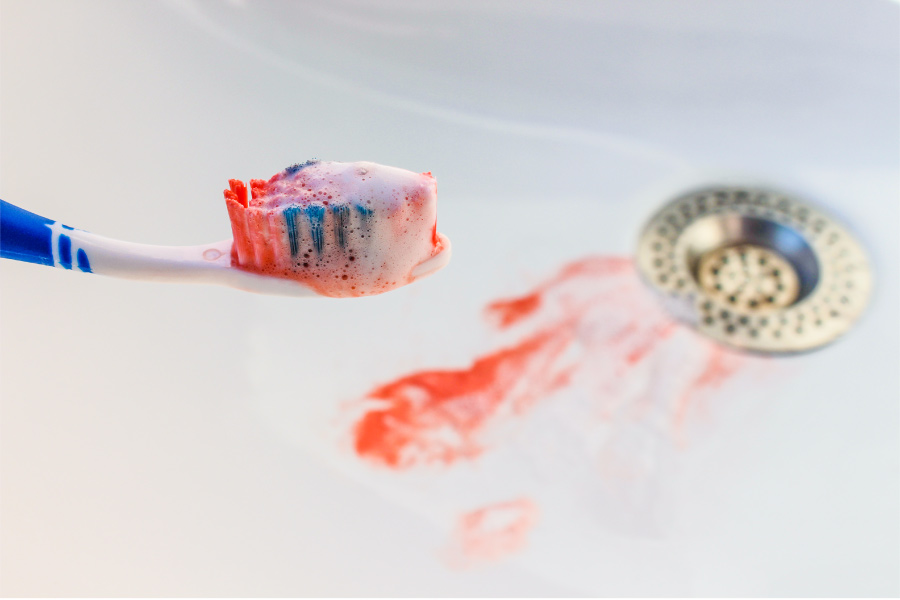
Understanding & Preventing Gum Disease
July 29, 2023 8:46 amGum disease, also known as periodontal disease, is a chronic inflammatory condition that affects the gums and supporting structures of the teeth. Understanding the causes of gum disease and how to manage it is crucial for preventing its progression, preserving a healthy smile, and contributing positively to your overall well-being.
How Does Gum Disease Start?
Gum disease typically starts with the buildup of plaque, a sticky film of bacteria that forms on the teeth. If not removed through regular brushing and flossing, plaque hardens into tartar, which can only be removed by a professional dental cleaning. The presence of plaque and tartar irritates the gums, leading to inflammation and the early stage of gum disease called gingivitis. Irritated gums recede, or pull back, from the teeth and form pockets that trap bacteria and promote infection.
Signs of Gum Disease
Common signs of gingivitis include gum redness, swelling, and tenderness, as well as persistent bad breath.
If left untreated, gingivitis will progress to periodontitis, a more severe form of gum disease. Periodontitis involves the destruction of the gum tissue, underlying bone, and ligaments that hold the teeth in place, which can potentially lead to bleeding gums, infection, loose and shifting teeth, and tooth loss.
How to Prevent Gum Disease
Effective gum disease prevention starts with establishing a consistent oral hygiene routine at home. Brush your teeth twice a day with a soft-bristled toothbrush and fluoride toothpaste. Brush your tongue every day too. Daily flossing removes plaque and food debris from between the teeth and under the gum line where a toothbrush can’t reach.
Drink plenty of water, consume a balanced diet, and avoid tobacco products.
Additionally, regular dental checkups and professional cleanings are vital for detecting and managing gum disease. Should gum disease progress to an advanced stage, other restorative treatments like scaling and root planing, laser therapy, antibiotics, and surgery may be required to address the disease and its damage.
Preventing gum disease is always preferable to treating it. Maintaining a healthy lifestyle and keeping up with routine dental checkups and cleanings will help you have healthy gums. When was the last time you visited the dentist? Contact us today to schedule an appointment with Dr. Serrano!
Categorised in: Restorative Dentistry

